Advertisement
Field Guide to Boston
As McCoy Stadium comes down, an ode to PawSox summers

Outings to McCoy Stadium in Pawtucket were special.
The Pawtucket Red Sox made McCoy their home in 1970, before becoming a Triple-A affiliate in 1973. Locals were lured to the little park by its inexpensive seats and shorter commute compared to the big league club in Boston.
High schoolers hawked peanuts in the stands. Fans ate soft serve ice cream from mini plastic helmets stamped with the PawSox ‘P.’ Some paused for pictures with Paws and Sox, the large white bear mascots that roamed the stadium. Fireworks rang out at the end of some games, as yawning kids were taken to the parking lot, sure to fall asleep on the drive home.
Now, the stadium home to the precious memories of many southern New Englanders is coming down.
Abandoned by the PawSox more than five years ago when the team left for Worcester, demolition is underway at McCoy. In its place, the city will build a new high school on the site.
Pawtucket City Council President Terrence Mercer described the change as “bittersweet.” He grew up a block away from McCoy and one of his first jobs was selling concessions at the park. He'd collect baseballs from batting practice that landed outside the stadium.
One day, Mercer said, he and his friends were approached by PawSox owner Ben Mondor, who saved team from bankruptcy in 1977, and was working to attract fans.
Mercer said the owner offered the kids a deal: Collect and return three batting practice baseballs in exchange for a free ticket.
“ I had a [later] conversation with him when I was maybe a teenager, he said, ‘look, we weren't drawing anybody,’ ” Mercer said. “ ‘I didn't have enough money to lose that many baseballs every day. You turn them in, I got my baseball back, and I got one more seat in the stand.’ ”
Locals like Mercer credited Mondor with transforming the struggling club into one of the most successful minor league teams in the sport. He brought yearly attendance up from just 70,000 fans in 1977 to more than 600,000 in the early 2000s.
Advertisement
Pawtucket borders the Bay State, and McCoy's family friendly atmosphere mixed with that proximity to Southeastern Massachusetts made it a draw for families from Seekonk, Attleboro, Rehoboth and beyond.
“ Most of the people that came, if you checked out their license plates, they were from Massachusetts,” said Cheryl Babiec, a lifelong Pawtucket resident who grew up down the street from the park.
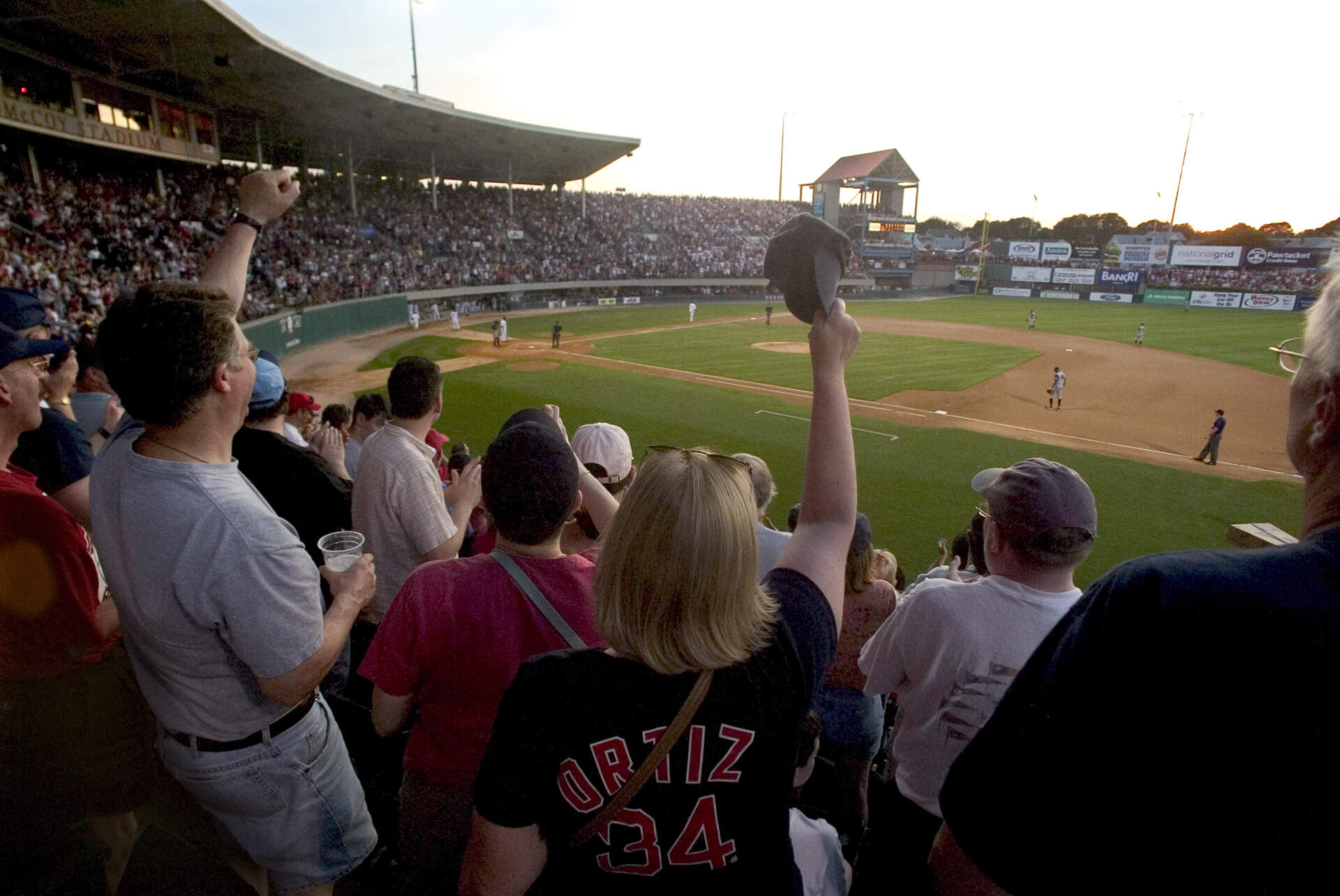
A retired teacher, Babiec used to take her fifth grade students to McCoy. The affordability made it an accessible field trip for many of the students who came through her classroom.
“ If a parent was asked by their child, they could get a hot dog or something here,” said Babiec. “It wasn't like you're going to Boston or something where you have to have a little bit of a bankroll with you.”
Babiec was one of the many locals who stopped by the stadium on a late March day to snap a photo of the demolition. A tangle of blue painted wood was all that was left of a concessions booth. The concrete walls that once lined the outfield had become heaps of rubble, allowing for an expansive view into the stadium. Rows of empty seats stood sentinel as construction workers took down the park.
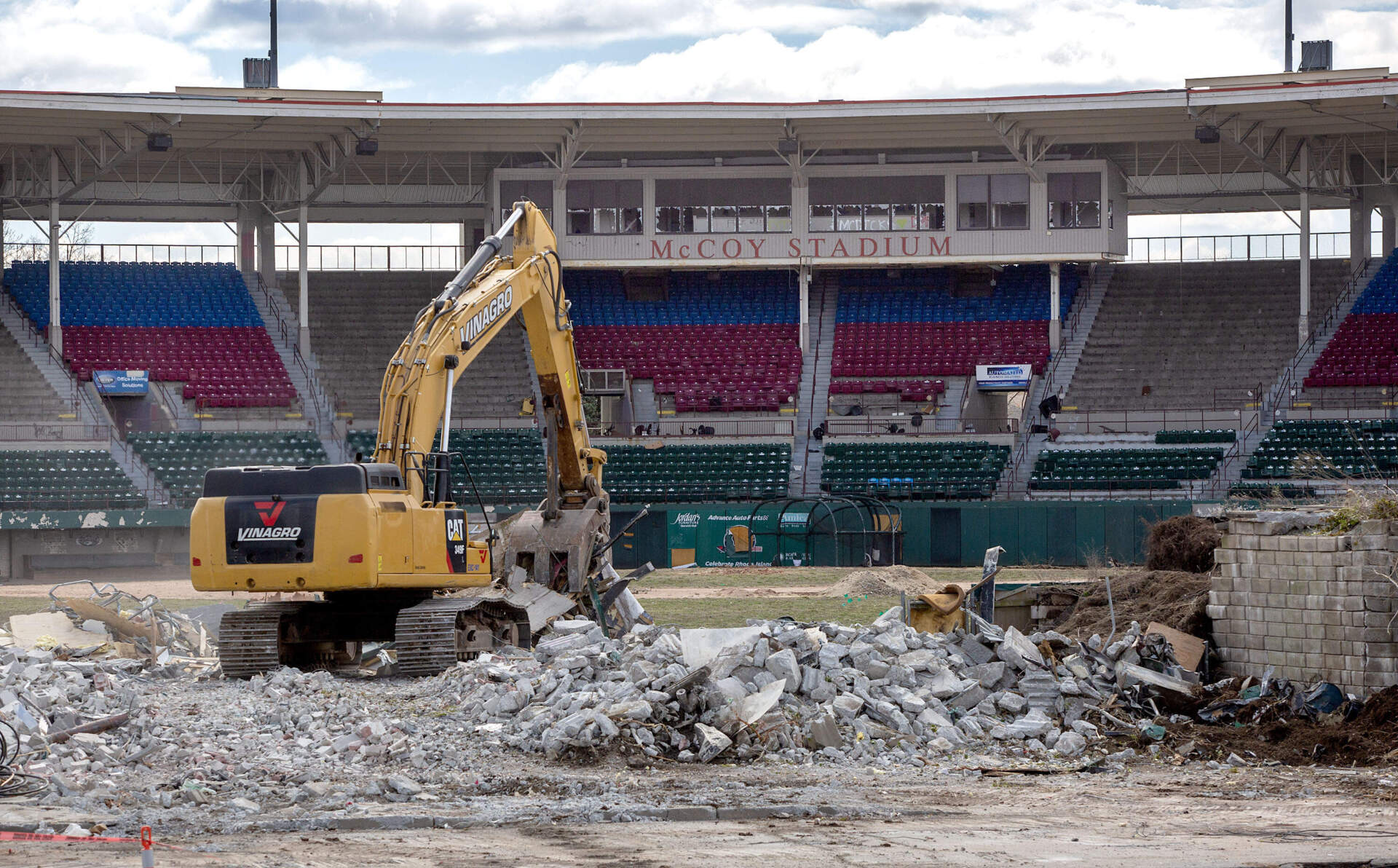
Playing the long game
PawSox fans at McCoy witnessed a lot in the club's more than 40-year run at the park.
Red Sox legends passed through often. David Ortiz spent time playing for Pawtucket as he rehabilitated from injuries in 2008 and 2013. Other greats like Jim Rice, Wade Boggs, Roger Clemens, Tim Wakefield and Jason Varitek spent time in Rhode Island as well.
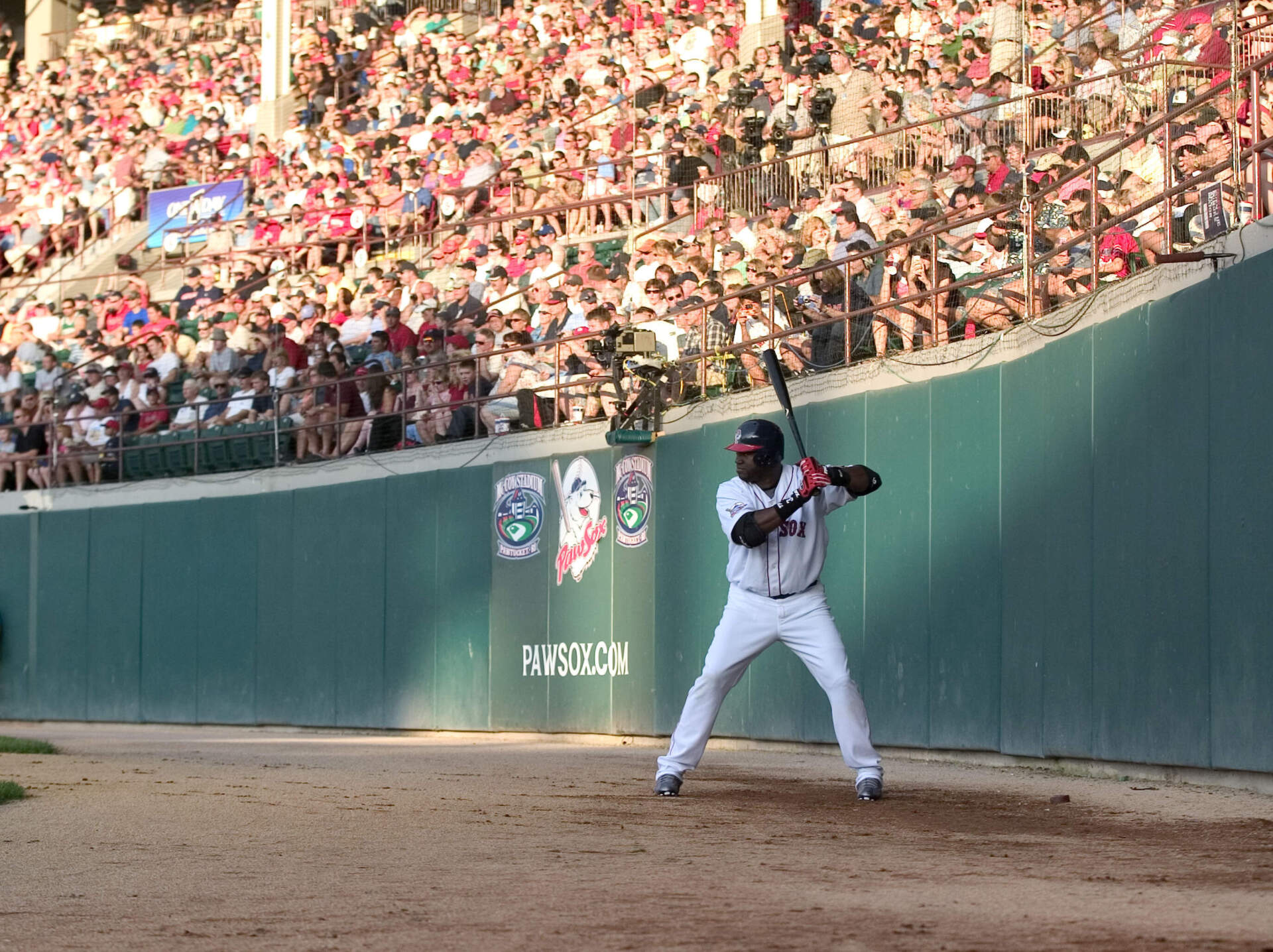
But the Pawtucket stadium has a claim to its own legend: It's the site of the longest professional baseball game.
Over 33 innings in 1981, the PawSox faced off against the Rochester Red Wings. The game began on a chilly evening Saturday, April 18. The start was delayed by electrical issues in the park. But that hiccup was long overshadowed when the ninth inning ended with the teams tied 1-1, and game stretched into extra innings.
The game remained knotted through another 12 scoreless innings. Then, the Red Wings scored a run in the 21st. But the Red Sox answered in the bottom of the inning, when future Hall of Famer Wade Boggs' knocked in a runner, re-tying the game.
As play stretched into the early hours of Sunday, teams burned old broken bats in trash barrels for warmth.
“ I think that's the first time I learned what a professional athlete was,” said Michael Kinch, who was a teenage clubhouse manager at the time. “Because at any time, one of those guys could have thrown a ball over the head and ended this thing and they fought. Both teams fought to the end.”
Kinch, who is now the city council president in Cumberland, Rhode Island, remembered slipping players candy bars to keep them fueled through the night.
The game was finally suspended at 4:07 a.m. Easter Sunday, tied at 2-2 after 32 grueling innings. Most fans had left by then, but first baseman Dave Koza said his wife stuck it out to the bitter end. The team went home for a few hours to rest up ahead of another game Sunday.
Play resumed on the historic game over two months later on June 23. Media flocked in; the game filled the void left by an ongoing Major League Baseball strike.
“We were the biggest show in town,” said Kinch.
The game wrapped after one final inning. The Sox won on a bases-loaded single hit by Koza.
“ You know, right place at the right time is all it was,” Koza said. “I hit a pitch that usually gets me out every time. And, I just happened to hit a ball into kind of left center right over the infielders' heads and we win the game.”
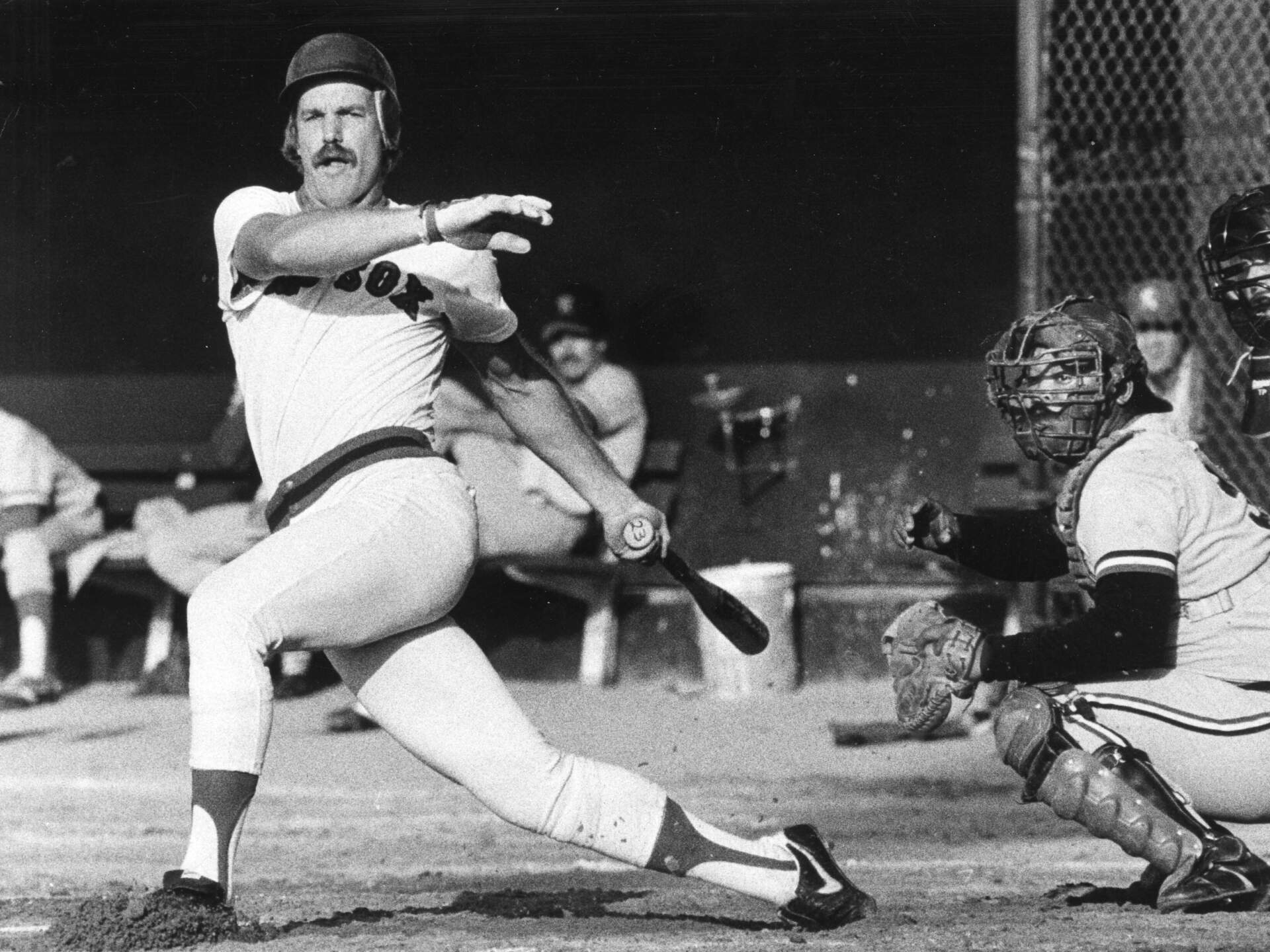
Koza played in Pawtucket from 1977 to 1983. In the early days, he said, he was only making about $500 a month, with $5 of meal money when the team went on road trips. But the love of the game kept him coming back.
“ Pawtucket was a great place to play baseball. It's only, what, 40, 45 minutes down the road from Boston," Koza said. "But, after the game you know, you'd get lucky enough to sign autographs and then you go out in the real world and, you know, people would recognize you.”
Shipping up to Worcester
In 2015, a group of investors led by Red Sox then-President Larry Lucchino and the major league team’s ownership group purchased the PawSox. The group intended to move the team to a new stadium on a stretch of land along the Providence River in the capital city in 2017.
Mercer said locals were “incredulous” when they heard about the relocation plans. McCoy stadium, built in 1942, had been renovated in the 90s.
“New owners are free to do with it what they want to do, but there was nobody who was a PawSox fan, or a McCoy fan, who felt that moving from there was necessary in any way, shape or form,” said Mercer.
Things went from bad to worse for PawSox fans; plans for a Providence relocation stadium fell through within months. The group considered other Rhode Island spots for a new ballpark, but in 2018 inked a deal to move the team to Worcester.
The team unknowingly played their final game on September 2, 2019, winning 5-4 over the Lehigh Valley IronPigs.
The team was set to play its final season in Pawtucket in 2020, but those plans were derailed by the pandemic. Instead, the stadium was used as a staging ground for COVID testing and food donation site for those struggling during the lockdown.
A year later, the rebranded WooSox took to the plate at Worcester’s new Polar Park.
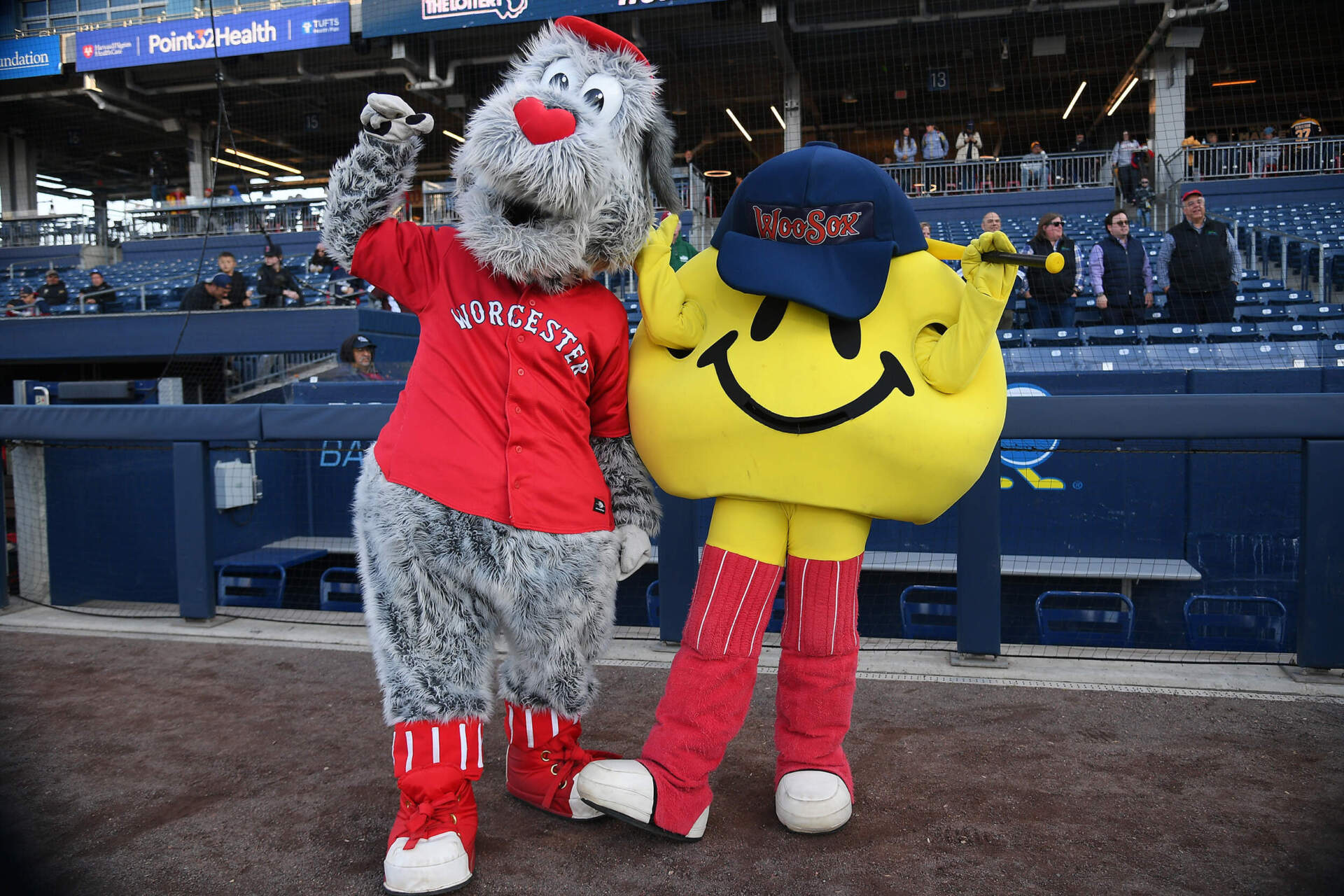
For some Pawtucket faithful, a trip to Worcester is a bit too hard to swallow.
“ I'm a huge baseball fan, let me tell you. But I haven't been able to bring myself to drive up 146 and go to the stadium,” Mercer said.
While McCoy is coming down, Pawtucket will soon have professional sports again. A new 10,500-seat soccer stadium is set to open this spring as the home for Rhode Island Football Club. The team's first home game is set for May 3.
The Pawtucket School Department plans to honor the legacy of McCoy at the new high school. One proposed idea is a display near the school's entrance with artifacts to mark key aspects of the stadium's history, according to Mark Andrade, the school department's chief operating officer. Another potential plan is to work salvaged materials from the stadium, like bricks and signage, into the design of the school.
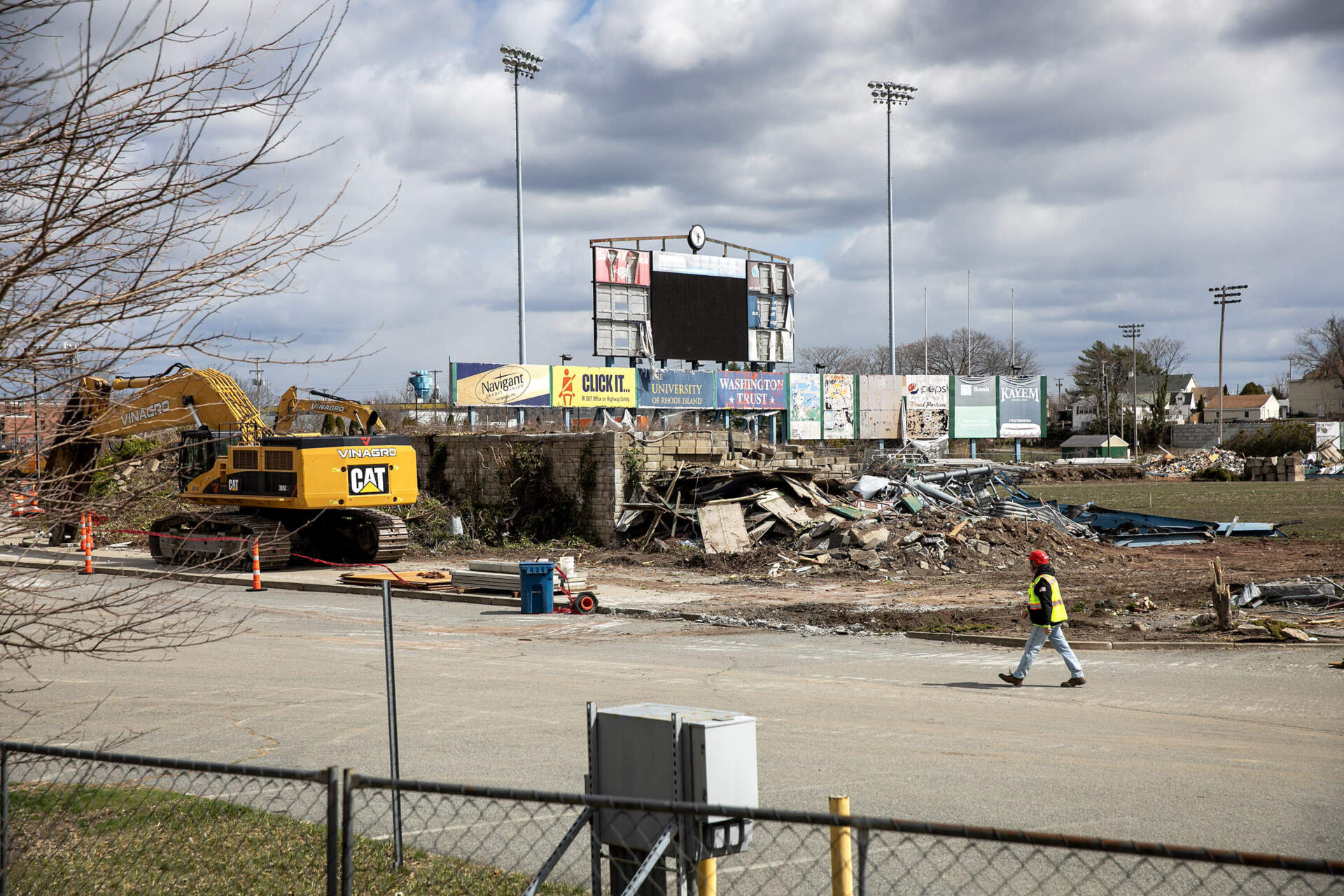
Some pieces from the stadium are living on in the hands of fans. Stadium memorabilia was auctioned off late last year, including seats, cup holders and signs.
A few of the seats were taken from the park and installed at a high school ballpark in nearby East Providence. Spectators can now watch the next generation of players on a piece of baseball history.
This segment aired on April 3, 2025.
